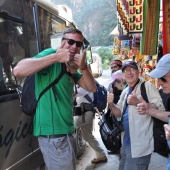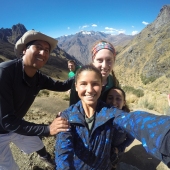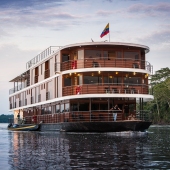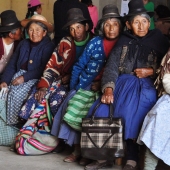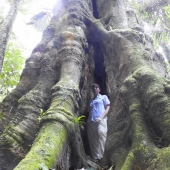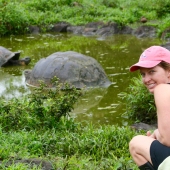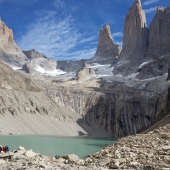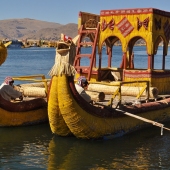
What you Need to Know About the Cost of Inca Trail Hikes
Hiking the world renowned Inca Trail is considered one of the most cherished bucket list experiences for hikers of all ages and backgrounds. Every year, about 60,000 lucky hikers land one of the imited permits only available through licensed tour operators. Most of these hikers book their hikes online then travel to Peru where their dream of hiking into Machu Picchu comes to life, and afterwards returning home with memories that really do last a lifetime. Meanwhile, behind the scenes is a struggle rooted in the unethical treatment of Inca Trail porters.
Why did the Peru government increase the cost of all multi-day hikes and treks in 2023?
On November 15, 2022, the ministry of tourism announced an increase, effective immediately, in the cost of permits for the 4 and 5-day Inca Trail hiikes. The short 1-day Inca Trail hike is not affected. The increase is to cover the cost of benefits for porters who carry all the gear and equipment on the trail. The cost per hiker will increase an average of $200 USD per person.
Why is there such wide disparity in the cost of 4-Day Inca Trail hikes among tour operators?
Hikers who buy the cheapest Inca Trail hikes may think they are getting a bargain. But this is one case where you are truly getting what you paid for and what you paid may affect someone else's well-being. All tour operators pay the same for fixed costs like Inca Trail permits, trains, buses and transportation. That leaves food, wages, the number of staff, and the size of the group as the remaining variables that can be manipulated to improve the bottom line for a tour operator trying to make a profit. Booking a cheap hike is quite easy. But booking a 4-day Inca Trail hike with an operator that cares about the quality of the hike and the ethical treatment of their staff, as well as the value of your investment makes it difficult for consumers who are faced with so many choices. How do you choose the best operator? If you follow my blog you know that I am business partners with Vidal Jaquehua, a native Peruvian guide who lives in Cusco. We have been working together since 2007 and Vidal has taught me way more than I can explain in a single blog post. But I will touch on the high points, and one of the most important things to consider when choosing a tour operator is how the Inca Trail porters are treated. What are their wages and how much gear are they expected to carry? And are they expected to go along with schemes to circumvent the controls to prevent porters from carrying too much?
Whether you choose the Classic 4 day Inca Trail hike or the extended 5 day Inca Trail trek, the following policy enforcements may affect rates you pay. The issue of porter weight limits flares up from time to time and we're pleased to report that park officials have implemented the enforcement of weight limits and fines for operators who try to circumvent the rules.
Here's what's happening with penalty fees for tour operators on the Inca Trail
Authorities at the Inca Trail checkpoints have been charging penalty fees to any operator who allows a porter to hike with excess weight. Porters are expected to carry all the group gear and individual duffle bags used by hikers. Duffle bags are limited to 11 lb/5.5 kg per person that includes the weight of the sleeping bag and mattress which are packed in the duffle bags. Before 2019, it was an acceptable practice to allow porters to pass through the check points with loads that were too heavy. As long as the porters didn't complain, no one cared. Porters learned to keep their mouths shut if they wanted to keep working.
What affects the cost of Inca Trail Hikes?
While there has always been a rule that limits the amount of weight that Inca Trail porters are allowed to carry, enforcement has been inconsistent and without consequences when weight limits were violated. With fixed costs being the same for all tour operators, hiring fewer porters is a tactic employed by shameless operators to reduce their expenses to gain advantage in the competitive market. These practices I list here ultimately have the greatest impact on the porters:
- pay lower wages to guides, cooks and porters. Less experienced guides and cooks will accept lower wages to get on-the-job training
- hire fewer porters and distribute the weight of the gear among the porters you hire
- pay less in local taxes by asking customers to bring a portion of their payments in cash
- spend less on food and ground transport. (operators should buy enough food to feed each hiker and all their staff)
- advertise rates based on the service of 1 porter per hiker, and upcharge people for additional porters
This explains why there is such disparity in advertised rates of Inca Trail hikes. Are these practices illegal? Not entirely. Are they unethical? Some are. Consumers can expect the quality of hikes to vary greatly from operator to operator. Some operators allow hikers to carry their own personal gear and sleeping bags, and forgo the cost of the extra porter. But most hikers choose not to. It doesn't matter if you provide your own sleeping bag or rent one. The weight of that bag is included in the porter's gear if you pack your sleeping bag in the duffle bag carried by a porter.
What Can You Do to Support Porter Weight Limits and Living Wages?
- Avoid booking the cheapest hikes is the most simple answer
- Ask the tour operator how many porters per hiker are included. And find out if you're expected to carry all your own personal gear
- Don't pay any portion of your trip in cash
How does this affect Adios Adventure Travel hikes?
Adios Adventure Travel has never been interested in offering "cheap" hikes. Our founder Vidal Jaquehua started his career as an Inca Trail porter. He understands the issues affecting porters. Our standard practice is to hire 2 porters for every hiker and provide comfort upgrades for camping. Our trail chefs take great pride in serving wholesome meals. In 2020 it is our intention to hire 1 additional porter per group. This has not been done before and how the ministry officials will respond is unknown because it requires using one of the limited 500 permits per day. The idea is to maintain our standard of respecting the load limits of porters while preserving acceptable standards of comfort for our hikers. We ask you to maintain a limit of 11 lb per person for your duffle bag. It's normal for bags to be over by a few ounces. Please ask your hotel to borrow their scale to weigh your bag before you finish packing.
This story applies only to the hikes that require permits and include overnight camping. The short 2-Day Inca Trail hike to Machu Picchu, which includes 1 day of hiking on the Inca Trail is not affected because there are no porters involved. Other hikes including Lares Valley, Quarry Hike, Choquequirao are not affected.
On November 15, 2022, the Peru government announced an increase in the cost of permits for the 4 and 5 day Inca Trail hikes. This results in $200 per person higher rate. The reason for the increase is to provide benefits to the Inca Trail porters.
Is there any other good news? You betcha! Follow this link to see Machu Picchu News


